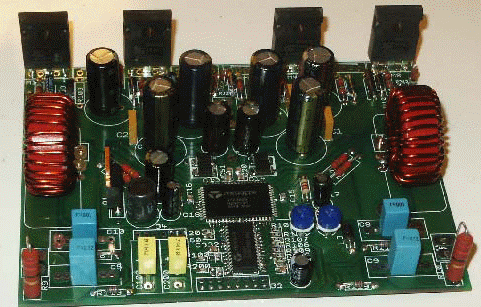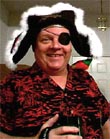|
|
This topic comprises 3 pages: 1 2 3
|
|
Author
|
Topic: THX amps?
|
|
|
|
|
|
|
|
|
|
|
|
|
|
|
|
|
|
|
|
|
John Walsh
Film God

Posts: 2490
From: Connecticut, USA, Earth, Milky Way
Registered: Oct 1999
|
 posted 12-02-2005 08:50 AM
posted 12-02-2005 08:50 AM




Given two similar pieces of equipment, I'd buy the THX rated one. It probably doesn't cost any significant amount extra anyway.
I agree that the "THX approved" nameplate doesn't mean much today, but I'd like to point out Louis's remark. 20 years ago, few products had as much hyperbole as audio equipment. Manufacturers routinely fudged specifications, ratings, etc. in almost any way possible to make their product look better (anyone remember the stupid IHF ratings?) RTA's, wow and flutter meters, good filters, etc. were expensive in the late 1970's, so it was somewhat difficult for the average person to see for themselves the real specs of a piece of equipment. This was the state of the industry when THX started rating equipment. As Gordon said, with a THX rating, at least the equipment will do what the spec sheet says.
So if you want to say THX rated equipment doesn't mean much today, well, OK. But to say it's a waste is like saying mag striping on release prints was a waste; you are using modern eyes to judge an old problem. THX raised the bar for motion picture audio and just about everyone has benefited. It too bad George just bailed on the whole idea 'quality' for theaters.
| IP: Logged
|
|
|
|
|
|
Richard Hamilton
Phenomenal Film Handler

Posts: 1341
From: Evansville, Indiana
Registered: Jan 2000
|
 posted 12-02-2005 07:01 PM
posted 12-02-2005 07:01 PM




quote: Gordon McLeod
Typically a THX approved device will do what the spec sheet claims it will how it is then used is upto the system design engineer
Exactly, as are all similar devices. About 10 years ago, I installed an 8 plex using Hafler amps, Smart ModIV's and JBLs, a single mic and a Goldline. THX was called in by a sub that was responsible for the sound insulation between the auditoriums. The THX tech set up his R2 to analyze everything, and asked me who set up the sound system because it was right on.
I agree alot has to do with the equipment, but the design and install play a major factor in the whole outcome. Who really cares about the name brand?
Does the average paying customer think about THX? I think they worry more about if the concession has Coke or Pepsi, or coconut or canola oil! Oh, and free refills!!
The fact is a well designed theater can get just as good results as a theater that has all THX approved equipment. In my opinion THX did not set any standards, the new technology and the competition between theaters has made the experience what it is today.
my 2 cents, Rick
| IP: Logged
|
|
Mark Gulbrandsen
Resident Trollmaster

Posts: 16657
From: Music City
Registered: Jun 99
|
 posted 12-03-2005 11:07 AM
posted 12-03-2005 11:07 AM




quote: Louis Bornwasser
To answer your question; I have found by experience that the very best amplifiers have one thing in common: they are RATED into a 2 ohm load.
That may be partially true of the more reliable amplifiers but, and this is a big BUT, The most important contribution to sound quality that an amplifier should posess is very low odd harmonic distortion levels..... The human ear is far more sensitive to odd harmonics than it is even harmonics.....
The next most important thing is having a large....no, huge power supply reserve, sometimes refered to as head room but its not just headroom that matters here.... the power supply capacity(large power cord, transformer, bridge rectifier(high speed rectifiers or just the 10 cent variety), and filter capacitors.... have alot to do with the reliability AND the overall sound of an amplifier. Just about 95% of the amplifiers we all install in cinemas are WAY underbuilt in the power supply department, thats how the manufacturers are able to afford all those lavish full page ads in national magazines!
There are other factors that weigh in with other things that really matter a great deal as what type of output devices are used right down to brand and type... some sound way better than others, are the emitter resistors inductive or non-inductive... inductive=cheap and they sound bad, this is what 95% of the commercial amps have, Mode of operation... class B, Class AB, or Class A, Is there an indictor in series at the output of each channel(really bad!), etc.
Personally, even though I dislike all digital cinema processors I do look forword to the new breed of Class D Digital power amps comming to use in cinemas in the near future. You can attain huge power levels.... easily 2-350 RMS into 8 ohms easily in a 12 pound package with little to no heat sinking! They typically run at 90+% efficiency. Many of the "consumer versions" of these amps sound phenominal and the radiated RF energy from them is now well under control. Reliability is as good or better than a standard power amp because of sophisticated byult in protection circuitry... parts count per channel is also way less.
Complete 2 chan 300 watt RMS @ 8 ohms Class D power amp less power supply. Power supply is +/- 60 vdc.

Mark
| IP: Logged
|
|
|
|
All times are Central (GMT -6:00)
|
This topic comprises 3 pages: 1 2 3
|
Powered by Infopop Corporation
UBB.classicTM
6.3.1.2
The Film-Tech Forums are designed for various members related to the cinema industry to express their opinions, viewpoints and testimonials on various products, services and events based upon speculation, personal knowledge and factual information through use, therefore all views represented here allow no liability upon the publishers of this web site and the owners of said views assume no liability for any ill will resulting from these postings. The posts made here are for educational as well as entertainment purposes and as such anyone viewing this portion of the website must accept these views as statements of the author of that opinion
and agrees to release the authors from any and all liability.
|

 Home
Home
 Products
Products
 Store
Store
 Forum
Forum
 Warehouse
Warehouse
 Contact Us
Contact Us




 Printer-friendly view of this topic
Printer-friendly view of this topic






![[Wink]](wink.gif)




![[bs]](graemlins/bs.gif) badge
badge ![[Big Grin]](biggrin.gif)


![[thumbsup]](graemlins/thumbsup.gif)








